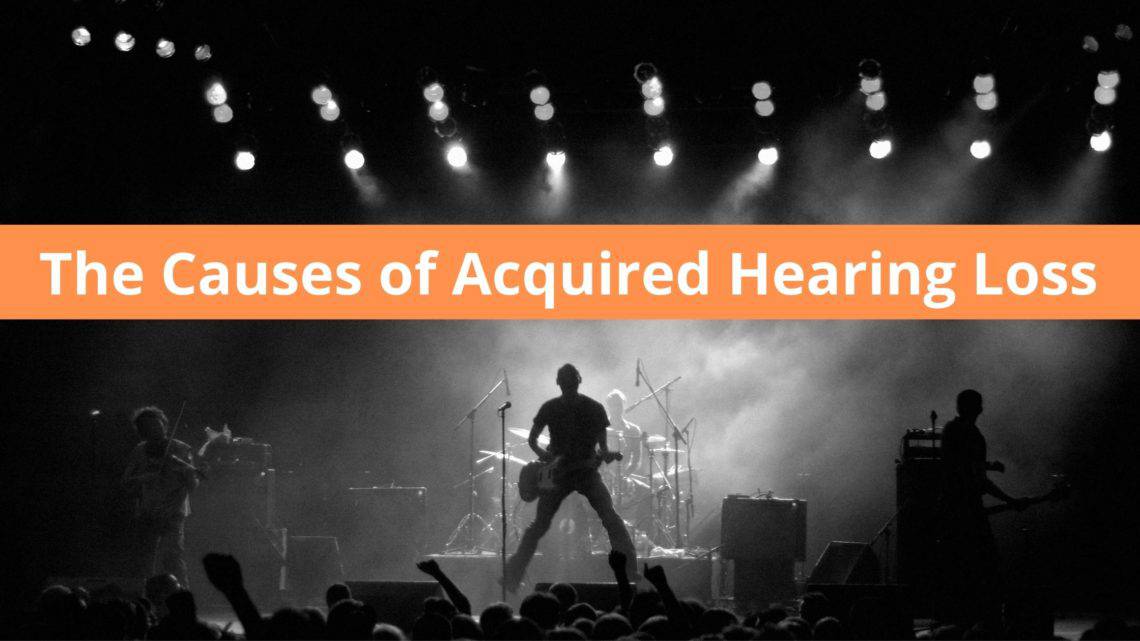Some people are born with hearing impairment, and these conditions come in a wide variety. While some have congenital deafness, others develop milder hearing impairments through the development process until birth. These conditions can take some time to identify, and many children are not diagnosed with hearing impairments until speech is ready to begin. As opposed to these conditions by which a person is born with hearing loss, the majority of hearing conditions are acquired. These forms of hearing loss occur throughout the lifespan, and they can happen at any time and age. Let’s look at the major causes of acquired hearing loss. By far, age and noise exposure are the most common causes, but many other factors can cause hearing loss, as well.
Age-Related Hearing Loss
One of the most common forms of acquired hearing loss comes later in life. As part of the natural aging process, the tiny hairlike organelles of the inner ear called stereocilia can become bent, broken, or damaged. This process may or may not have to do with noise exposure, as we see in the next form of acquired hearing loss. The aging process alone can be enough to cause hearing loss. Researchers continue to investigate the precise nature of this loss. Some attribute age-related hearing loss to inflammation, while others think it has to do with sound exposure over the lifespan.
Noise-Induced Hearing Loss
The other major form of acquired hearing loss is directly related to noise exposure. The noise-related events that can cause hearing loss are quite varied. In some cases, a single extremely loud event, such as an explosion, blast, car crash, or other sudden bursts of sonic pressure, can be enough to cause hearing loss in an instant. On the other hand, exposure to lower levels of noise over an extended duration can also cause permanent loss.
Noise-induced hearing loss occurs as a combination of volume, measured in decibels, and duration, measured in hours or minutes of exposure. A relatively quieter sound, when encountered for hours on end, can be sufficient to cause permanent acquired hearing loss. It is important to note that noise-induced hearing loss is not isolated to seniors. In fact, this type of hearing loss is on the rise among younger people, and many experts attribute that increase to the rise in personal audio media that is streamed for long periods of time through earbuds and headphones.
Hearing Loss after Accident or Injury
Many injuries can cause acquired hearing loss, particularly head trauma and direct blows to the ears. These injuries can happen in a combination effect. When head trauma occurs, the pressure to the ear canal can be sufficient to cause hearing damage. At the same time, that event might cause a loud sound that creates noise-induced hearing loss, as well. Protecting against this type of acquired hearing loss includes the proper use of helmets and protective equipment during sports and recreational vehicle use.
Illness-Related Hearing Loss
Some illnesses can cause hearing loss, as well. Ear infections, meningitis, chickenpox, measles, encephalitis, mumps, and flu are among the illnesses that can cause hearing loss. In some cases, these types of hearing loss can be temporary, particularly when they are not related to damage in the inner ear. Many ear infections lead to temporary hearing loss when they occur due to bacterial growth in the ear canal. In addition to direct illness-related hearing loss, some medications can cause hearing loss, as well. These substances are called ototoxic chemicals because they cause damage to the ears. Though some of these medications can be life-saving, as is the case with chemotherapy, one of the unfortunate side-effects can be hearing loss.
With these causes of acquired hearing loss in mind, it is important to remember that treatment is available for many cases in the form of hearing aids. Not all acquired hearing loss can be treated, but most cases of age-related and noise-induced hearing loss—the two most common types—can benefit from hearing assistance.
Hearing Wellness Solutions
If you have experienced changes in your hearing, contact us today for a hearing exam. We look forward to helping you on your journey to better hearing!


